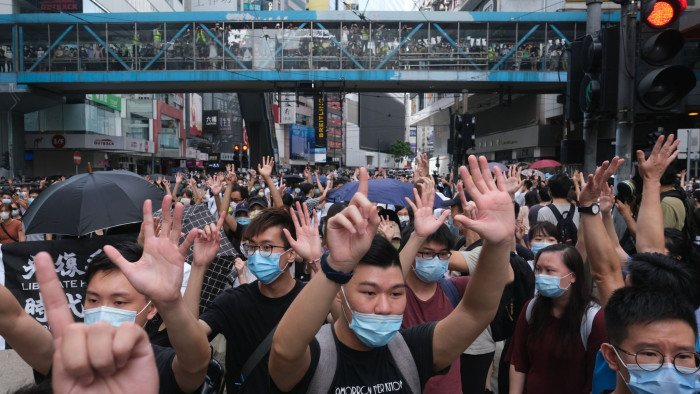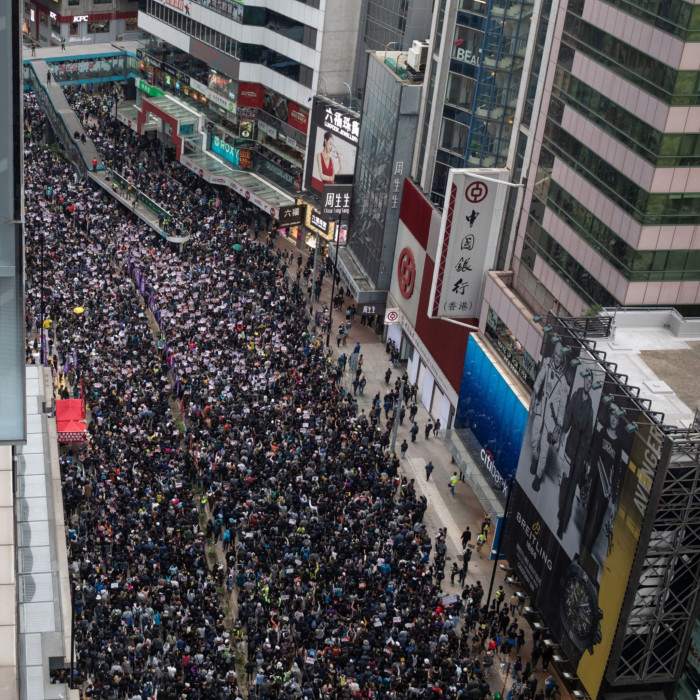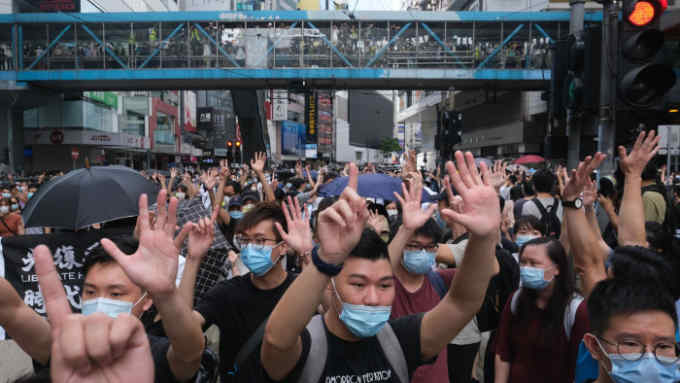How to assess the tough new Hong Kong law


Roula Khalaf, Editor of the FT, selects her favourite stories in this weekly newsletter.
To many in Hong Kong’s overseas business community, Beijing’s imposition of a sweeping new national security law in July registered with the force of an earthquake.
A full 76 per cent of the surveyed members of AmCham, American Chamber of Commerce in Hong Kong, which has more than a thousand US corporate members, said they were “extremely concerned” or “somewhat concerned” at the content of the new law.
One anonymous AmCham member wrote: “Vague and sweeping, [the law will be] a disaster if applied as it is in Hong Kong.” Another survey respondent said that Hong Kong’s much vaunted legal system — which for decades has helped underpin the territory’s success — would cease to exist.
In early June, Nomura’s chief executive said the bank was reviewing its operations in Hong Kong, because of authoritarian interventions by Beijing and the protests they provoked.
What should businesses in Asia’s world city do to prepare for an uncertain new era?
The first thing, says Paul Haswell, partner at law firm Pinsent Masons in Hong Kong, is to try to understand what the law — and its extraterritorial reach — could mean in concrete terms.
But this is no easy task. “The national security law is written in very broad terms so there is a lot of room for interpretation,” Mr Haswell says.
Beijing’s main intention, analysts say, is to award itself expansive powers that go far beyond the law’s four stated targets of combating secession, subversion, terrorism, and collusion with foreign forces.
The definition of subversion, for instance, includes anything that causes “serious interference, obstruction or damage” to the exercise of power by state organs in China or Hong Kong. This could potentially mean joining a demonstration, writing something critical of Hong Kong or mainland authorities, or even supporting an action that is judged inimical to the interests of China’s many state-owned enterprises.
“Collusion with foreign forces” is another catch-all category that includes — among several other clauses — “using unlawful means to cause hatred among Hongkongers toward the Hong Kong or Chinese government”. The law does not define how “hatred” is to be measured or how widespread or lasting it needs to be before it constitutes grounds for an offence.
Such clauses, lawyers say, are reminiscent of mainland China’s system in which the letter of the law is less important than the political will behind it. The key skill for businesses in mainland China has long been to judge which way the political winds are blowing and stay on the right side of them.
This modus operandi, which has long been reflexive for foreign companies operating in mainland China, banishes legal certainty. Before corporate decisions are taken, “government relations” executives assess their potential to cause political offence.

Whether such a system does take root in Hong Kong remains to be seen. Of more immediate concern, however, are other unusual aspects of the national security law that are at least as unsettling.
One of these is the law’s extraterritorial reach. “It applies to everyone worldwide,” says Mr Haswell. “If you have a company in the US that is critical of Hong Kong or China — to the extent this is viewed as a breach of the law, then there could be a serious impact on your business in Hong Kong or China.”
This feature presents a challenge for businesses. While it may be possible to sensitise employees in Hong Kong and the mainland to avoid critical public statements about China, doing so on a global basis in an age of social media may not be possible.
The case of Daryl Morey, the Houston Rockets executive who tweeted his support for the popular protests in Hong Kong last year, shows the stakes in play. In the row that ensued, Chinese video streaming services, sponsors, leagues and others cut ties with the Houston Rockets.
Other unsettling aspects of the new law concern potential conflicts with existing national laws in other countries. For instance, if a company complies with US sanctions against scores of Chinese corporations, will it then be breaking the national security law’s articles that guard against “damaging” China?
“One question that I am being asked is whether, if you comply with US sanctions on China, you are breaking the Hong Kong national security law,” says Mr Haswell. “Given how new the law is, it is really tricky to know the answer, and there would be significant challenges ahead for global companies if compliance with the sanctions of one country meant breaking the law of another.”
For now, few overseas business people in Hong Kong are rushing for the exit. Most are sitting tight and watching how the law is enforced, hoping for a light touch.
Pessimists argue, however, that with US-China relations at their lowest ebb since the 1970s, political antagonism may triumph, leading Beijing to take punitive action using the law against US and western interests in the city. If that happens, a mass exodus from Asia’s business hub becomes yet more possible.
The writer is the FT global China editor
Email James at james.kynge@ft.com

Comments